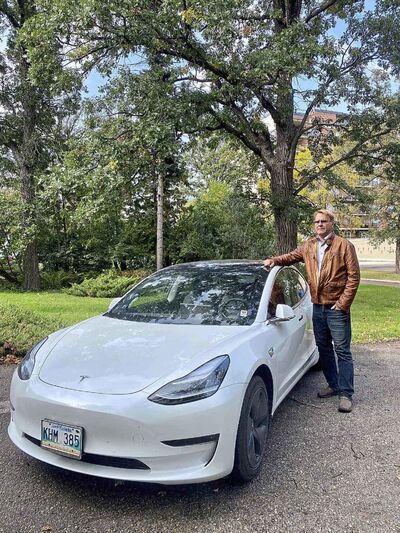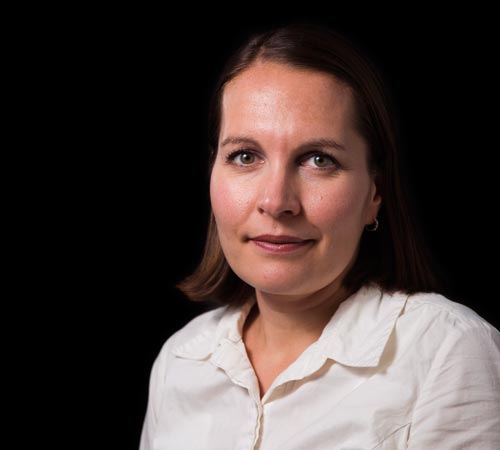Can free parking convince notoriously budget-conscious Winnipeggers to drive electric vehicles?
Coun. Kevin Klein is lobbying for a city staff report on offering up to five consecutive hours of free parking for most all-electric personal vehicles at any city-owned surface parking lot or metered street stall.

Peter Holle with his electric car. (Submitted)
Any lost parking revenue would be well spent to help reduce greenhouse gas emissions, Klein said.
“I want to make sure that we’re doing our part to entice more people to buy electric cars… and I think we can do that by offering something as small as free parking,” he said.
In a motion headed for debate at the April 9 Assiniboia community committee meeting, the councillor asks the city to consider a permit process for eligible automobiles, which would exclude heavy-duty vehicles, towing trailers and hybrid models.
Klein said he would also like to see the city install more electric vehicle charging stations to make zero-emission cars and trucks more convenient to drive.
Any effort to encourage electric vehicle use is helpful, said Robert Elms, the president of the Manitoba Electric Vehicle Association.
“It’s just one more indication… that government endorses these vehicles,” he said.
The move would slightly offset the typically higher initial price for electric vehicles, he said, noting the cost remains the biggest hurdle to people buying them. After the purchase, fuel and maintenance savings quickly add up for battery electric cars, reducing their overall cost, he said.
Elms believes the best way the city can inspire the public to choose electric vehicles would be to switch its own municipal fleet to those models.
“The most important thing… is leading by example. There is no question about that. That is a huge, huge statement to the public when cities do that,” he said.
More than 700 Manitobans own a battery electric vehicle, the association said.
A Winnipegger who regularly drives his wife’s electric Tesla said his family didn’t need government incentive to buy it. That decision was based primarily on the vehicle’s low energy costs and high performance, said Peter Holle.
“I can drive to my cottage for $1.50, so there are great advantages,” he said. “Electric cars are coming and, as the costs of the batteries go down… they’re going to become competitive. At some point it won’t make sense to buy a gasoline car.”
Free parking might trigger some interest in lower-priced electric vehicles but Holle is skeptical about whether that would result in purchases.
By contrast, electric vehicle owner Ron McLachlin said he expects any incentive would help.
“I think anything that shows that electric vehicles (EVs) are favoured and people are paying attention to them, that shows EVs have got some sort of status… (is) a fabulous idea,” said McLachlin.
Curt Hull, a project director with Climate Change Connection, said he expects the free parking initiative would provide a visible, low-cost way for the city to support electric vehicles.
Ideally, the city should take further steps to support zero-emission transportation, such as by requiring new building developments to include a certain number of charging stations, Hull said.
“Just the same as they require a certain number of parking spots, some percentage of them should (offer) electric charging stations,” he said. “The world is headed this way and it makes sense to be leading rather than following.”
Hull stressed there’s an urgent need to combat climate change, which requires immediate action from all levels of government.
Joyanne.pursaga@freepress.mb.ca
Twitter: @joyanne_pursaga

Joyanne Pursaga
Reporter
Born and raised in Winnipeg, Joyanne loves to tell the stories of this city, especially when politics is involved. Joyanne became the city hall reporter for the Winnipeg Free Press in early 2020.
